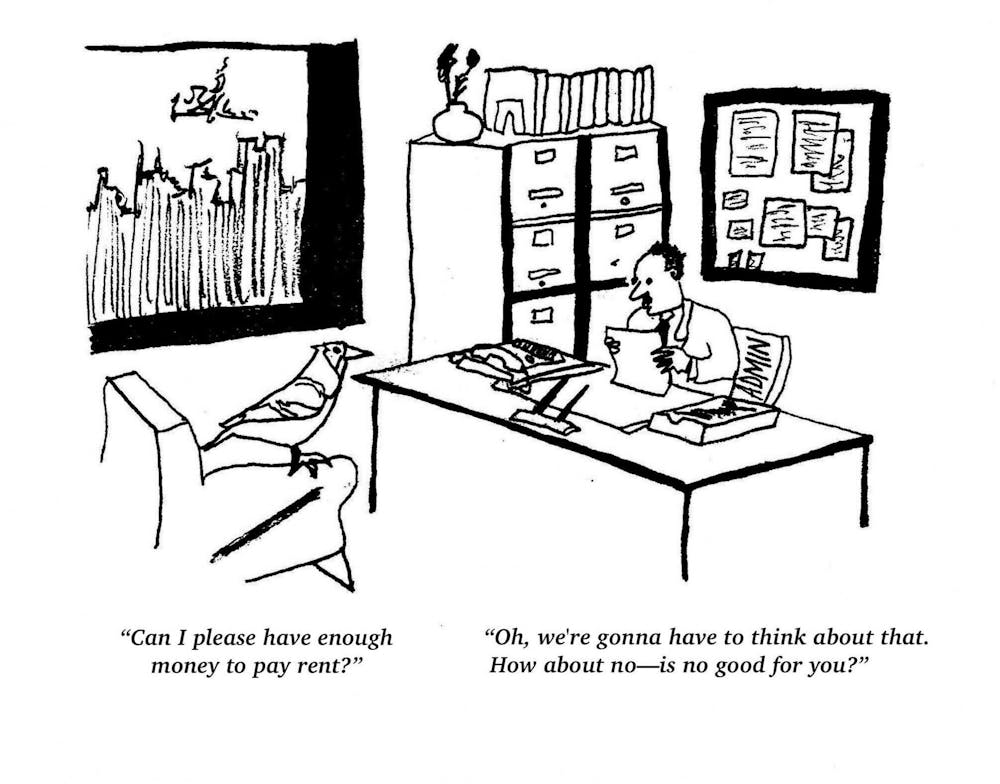Teachers and Researchers United (TRU) — affiliated with United Electrical Radio, and Machine Workers (UE) — has achieved a historic milestone. Last week, after more than four years of organizing, Hopkins graduate students voted to unionize with a resounding 97% majority.
TRU was founded in 2014 to call for improved working conditions for Hopkins graduate students. At the time, unionization was not an option. It wasn’t until a 2016 ruling by the National Labor Relations Board that graduate-employee unions became legal at private universities. In 2018, TRU announced its intention to unionize Hopkins PhD students.
At the start of the COVID-19 pandemic, TRU repeatedly advocated for graduate students. The group called on the University to provide more financial assistance, increase health and safety measures in graduate research and support students whose research was delayed by the pandemic.
The demands that TRU has been fighting for since 2014 aren’t unreasonable in the slightest. The union’s platform includes a living wage, on-time payment, better support for international students, reliable transportation and safe workspaces. TRU calls on Hopkins to pay its graduate students at least $40,000 a year, which is just above the living wage for a single adult in Baltimore City.
We have long supported TRU’s efforts to secure better conditions for Hopkins graduate students. In 2021, we called on the University to listen to TRU and provide financial support to graduate students during the pandemic. This past fall, we voiced our support for University employees protesting for fair wages and job security.
Finally, in 2023, TRU-UE will now begin contract negotiations with the University as a recognized union. However, graduate students’ fight for unionization did not have to take this long. Hopkins could have decided to recognize TRU as an official union at any point based on evidence. Instead, the University cowardly delayed TRU’s fight until the recent union representation election forced its hand.
Graduate students at Hopkins are not the first to protest unfair treatment: TRU-UE’s campaign has taken place in a larger context of graduate student unionization efforts across the country. These efforts have risen as universities across the U.S. rely more heavily on non-tenure-track faculty’s labor, which increases the workload of graduate students at these universities.
The pandemic only exacerbated the pressure on graduate students. According to interviews conducted by the Brown Daily Herald, graduate students at multiple of our peer universities felt that their respective administrations did not consider the needs of graduate students when rolling out COVID-19 policies. Graduate students’ dissatisfaction with university administrations during the pandemic only further fueled the labor movements that were already in the works.
Recently, graduate students have been striking and unionizing at campuses across the country. At the end of 2022, in the largest “work stoppage” on record at a U.S. higher education institution, graduate students in the University of California system went on strike for higher salaries, increased child-care support and paid leaves, among other demands.
Here at Hopkins, as the University heads into negotiations with TRU-UE, it must ensure that Hopkins sets a positive example of proper graduate student compensation and treatment.
We at The News-Letter do not know exactly what these negotiations are going to look like. However, we know that the movement for graduate student unionization has been drawn out for far too long already, and we encourage the administration to meet TRU-UE’s demands in a timely fashion.
Moving into negotiations with the University is an exciting step for TRU-UE, but the fight isn’t over. At other institutions, graduate students have gone on strike after unsuccessful negotiations with their administrations. At Columbia University, graduate students went on strike for 10 weeks to demand higher wages and better health benefits. Meanwhile, graduate students at Temple University are currently on strike, calling for a 50% pay increase.
The larger student body deserves transparency surrounding the negotiations between Hopkins and TRU-UE. Although undergraduates are not the subject of these contracts, both the work and well-being of graduate students have a direct impact on the education of all undergraduates on campus.
Especially in large lectures, graduate teaching assistants (TAs) are integral to the day-to-day operations of the courses, whether they are grading student work, leading weekly sections or holding office hours. The University acknowledges the monumental role that TAs play in undergraduate education, stating that “Nearly every undergraduate student at Hopkins interacts at some point with a [TA] who functions in an instructional capacity.”
It’s crucial to remember that graduate students are taking on these roles on top of their own academic commitments. They shouldn’t have to worry about how to afford groceries on top of everything else. As graduate students take on additional responsibilities to support our undergraduate educations, we should support TRU-UE’s demands as they begin negotiations.
Furthermore, graduate students maintain the University’s prestigious research status. Take, for example, the University’s COVID-19 tracking map, which gained global recognition as a tool for monitoring the pandemic. This map was created by a civil and systems engineering professor in collaboration with her graduate student. The University can acknowledge the immense contributions that graduate students bring to Hopkins by meeting their demands during negotiations.
As TRU-UE joins the ranks of graduate student unions pushing for further institutional support across the country, we want to stress the importance of keeping conversations about graduate student well-being in the public realm. These students do invaluable work for the universities they attend and deserve to be compensated as such.





